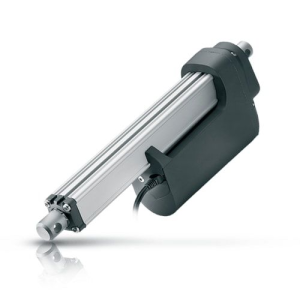
Motorized actuators are integral components in various industrial and commercial sectors, providing the essential movement and control needed to operate a wide range of mechanical systems. These devices convert electrical energy into mechanical torque, driving everything from simple machinery to complex robotic systems. This article delves into the top applications for motorized actuators, highlighting their versatility and critical role in modern technology.
10 Applications for Motorized Actuators
Motorized actuators are increasingly finding their place in smart home technology, controlling everything from automated blinds and curtains to advanced security systems that require precise movement. They also play a critical role in environmental monitoring equipment, where precision in sample collection and instrument adjustment is paramount. Additionally, the growing trend towards more interactive and adaptive retail displays leverages motorized actuators to enhance customer engagement and experience. These varied applications underscore the adaptability of motorized actuators, showcasing their ability to transcend traditional industrial uses and integrate into daily life and consumer-oriented environments.
- Manufacturing Automation
In the manufacturing industry, motorized actuators play a pivotal role in automating production lines. They control machinery movements precisely, ensuring efficient and reliable operation. From assembly robots that require linear or rotary motion to conveyor systems that adjust speeds automatically, actuators enable high levels of productivity and precision in manufacturing processes.
- Automotive Industry
The automotive sector relies heavily on motorized actuators for various applications, including assembly lines, vehicle testing, and component manufacturing. Actuators are used to adjust car seats, operate sunroofs, and manage ventilation systems within vehicles. Their ability to provide controlled, repeatable movements makes them ideal for the precise and demanding work involved in automotive manufacturing and assembly.
- Aerospace and Aviation
In aerospace and aviation, motorized actuators are critical for controlling the movement of aircraft components such as flaps, slats, and landing gears. These actuators must meet extremely high standards of reliability and precision to ensure the safety and functionality of aircraft in all flying conditions. The exacting requirements of this field showcase the reliability and performance capabilities of advanced motorized actuators.
- Healthcare and Medical Devices
Motorized actuators find significant applications in the healthcare industry, particularly in medical devices and surgical instruments. They are used in imaging systems like MRI machines, where precise movement is crucial, and in robotic surgical devices, which rely on actuators to perform complex maneuvers with high precision. These applications demonstrate the actuators’ ability to operate reliably in environments where accuracy and reliability are critical.
- Energy Sector
In the energy sector, motorized actuators are employed to control valves and gates in hydroelectric power plants, wind turbines, and traditional fossil fuel power stations. They adjust flow rates and direct movements essential for optimizing energy production and ensuring the safe operation of energy-generating equipment. This application highlights the actuators’ role in enhancing efficiency and safety in energy management.
- Building and Construction
Motorized actuators are also used extensively in the building and construction industry. They are essential for operating ventilation systems, opening and closing windows, and managing security barriers and gates. In large building projects, actuators help automate tasks that would otherwise require manual labor, improving efficiency and safety on construction sites.
- Water and Wastewater Management
In water and wastewater treatment facilities, motorized actuators are crucial for operating sluice gates and valve controls that manage the flow of water and treatment chemicals. Their reliable operation ensures that water treatment processes are efficient and meet environmental standards, showcasing the actuators’ importance in maintaining public health and safety.
- Defense and Military
The defense sector utilizes motorized actuators in various applications, including the movement of weaponry, control of unmanned systems (like drones and robotic vehicles), and adjustment of radar and other surveillance systems. The robustness and reliability of actuators are particularly valued in this sector, where equipment must perform flawlessly under challenging conditions.
- Entertainment and Stage Production
In the entertainment industry, motorized actuators are used to create dynamic stage settings and automate special effects. They adjust lighting, move set pieces, and operate complex machinery that brings performances to life. This application underscores the actuators’ versatility and their ability to provide reliable performance in a range of creative and public settings.
- Agriculture and Farming
In agriculture, motorized actuators are employed in automated feeding systems, irrigation controls, and greenhouse environmental management systems. They help optimize agricultural operations, ensuring efficient use of resources and improving crop production. This highlights the actuators’ role in modernizing traditional industries and enhancing productivity through automation.
As DigiKey distributes a wide range of actuators, including those from ETI Systems, their partnership is crucial in delivering these essential components across various industries. This collaboration ensures that industries can access high-quality, reliable actuators to meet their specific operational needs, further driving innovation and efficiency in the application of motorized actuators.
Conclusion
Motorized actuators are versatile and essential tools in numerous industries. They drive innovation and efficiency in operations, ranging from simple mechanical movements to complex, high-stakes tasks. Their reliability, precision, and adaptability make them invaluable in settings as diverse as manufacturing, healthcare, energy, and entertainment. As technology advances, the applications for motorized actuators will continue to expand, further integrating these powerful devices into the fabric of modern industry and technology.

